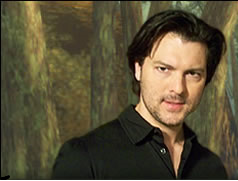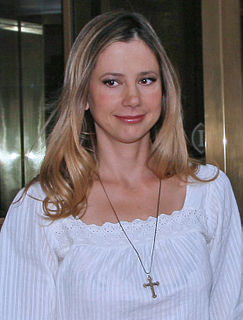A Quote by Nathan Phillips
It's very important to lead your own story: to not be acting as much as you are living.
Related Quotes
The story, I like to say and remember, is always smarter than you—there will be patterns of theme, image, and idea that are much savvier and more complex than what you could come up with on your own. Find them with your marking pens as they emerge in your drafts. Become a student of your work in progress. Look for what your material is telling you about your material. Every aspect of a story has its own story.
I love acting. I think that's the best job in the world, but I don't really enjoy the career of it so much. You don't have as much control over your life or the material as you do, well, certainly when you're a director or a producer, so while I love acting, I prefer to make my living as a filmmaker, but my rule on acting is if somebody asks me to do a part, I'll do it.
Life is very fleeting. It’s important to be gentle and optimistic. We look behind and think what we’ve done in this life has been good. It was simple; it was modest. Everyone creates their own story and moves on. That’s it. I don’t feel particularly important. What we create is not important. We’re very insignificant.
The best time to tell your story is when you have to tell your story. When it's not really a choice. But then, when you get that first, messy, complicated version down, you have to read it over and be very tough on yourself and ask, 'Well what's the story here?' If you're lucky enough to have someone you trust looking over your shoulder, he or she can help you if [you] lack perspective on your own story.
I will do plays as long as they're interested in having me do them. It's the biggest opportunity to learn the most about how to act. Something I discover every time I'm doing one is how little I know about acting - how important the art of listening is, and how important it is to listen with your entire body. You can tell so much of a story with stillness, and a lot of that can be from really actively listening to your scene partner.
We have so much access to one another through technology and everything else, that we're very much used to people being real. When folks go on TV and they're basically acting - if they were good actors they'd be acting and paid for it for a living, but they're not good actors. When we see bad acting, it doesn't look like bad acting, it looks weird, and we are turned off by it. I'm not talking about anybody in particular, that's just politics right now. This generation, I feel like, has incredible bullshit detectors.
That's the thing about acting - it does have the feeling of downhill skiing. When it's really all going right, you know your lines, you know what's important to your character, you pick the strongest reactions possible to elements in the story. But then you let it all go and you're in the moment and stuff happens. It surprises you and it's super strong; it's like you're living life in a slightly heightened way in the time between "action" and "cut."
I'm very much drawn to these stories. This is a huge, great story [in Doctor Strange] about the possibility of living beyond everything, living beyond mortality, living beyond all the immortal confines, living beyond the planet as we know it. It's mind-blowingly no limits, and I think this is going to be something else.




































